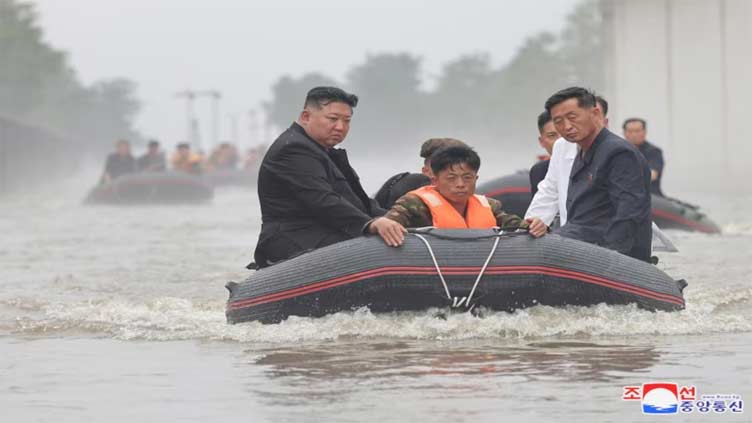North Korean leader revisits flooded area, offers plan to bring people to capital

World
Kim made a two-day trip on Thursday and Friday to Uiju County
SEOUL (Reuters) - North Korean leader Kim Jong Un revisited a flooded area near the country's border with China this week to address plans to support those affected by recent heavy rainfall and floods, including bringing about 15,400 people to the country's capital until new homes are built, state media KCNA said on Saturday.
Kim made a two-day trip on Thursday and Friday to Uiju County, one of the affected areas, to offer additional support for those affected, KCNA reported.
Thousands of homes in North Korea's city of Sinuiju and Uiju County were flooded due to heavy rainfall, North Korea said last week.
In late July Kim visited flooded areas and inspected rescue works where the military organised around 10 planes to make roughly 20 trips each to rescue 4,200 people within about a half-day after the region had been hit by heavy rainfall from Tropical Storm Gaemi.
KCNA said Kim addressed plans to provide state support for elderly people, soldiers, children and mothers in the country's capital Pyongyang until their new homes are built, adding about 15,400 people could be brought to Pyongyang.
Kim said it would take at least two to three months for flood victims to stabilize their lives after construction of houses and repair work is done due to the large scale of the damage.

Kim also thanked those countries and international organizations that have reached out to North Korea and showed intention to provide humanitarian support, but said the country will "forge its own path with its own strength and effort," KCNA quoted Kim as saying.
On Sunday, North Korea said Russian President Vladimir Putin has offered humanitarian aid to North Korea. Kim gave thanks for the offer but said since his government has already taken measures to conduct recovery work, he would ask for help "if aid is necessary," KCNA reported.
Last week, South Korea's Red Cross said the South was ready to provide the North with relief supplies for damage caused by recent heavy rainfalls.


